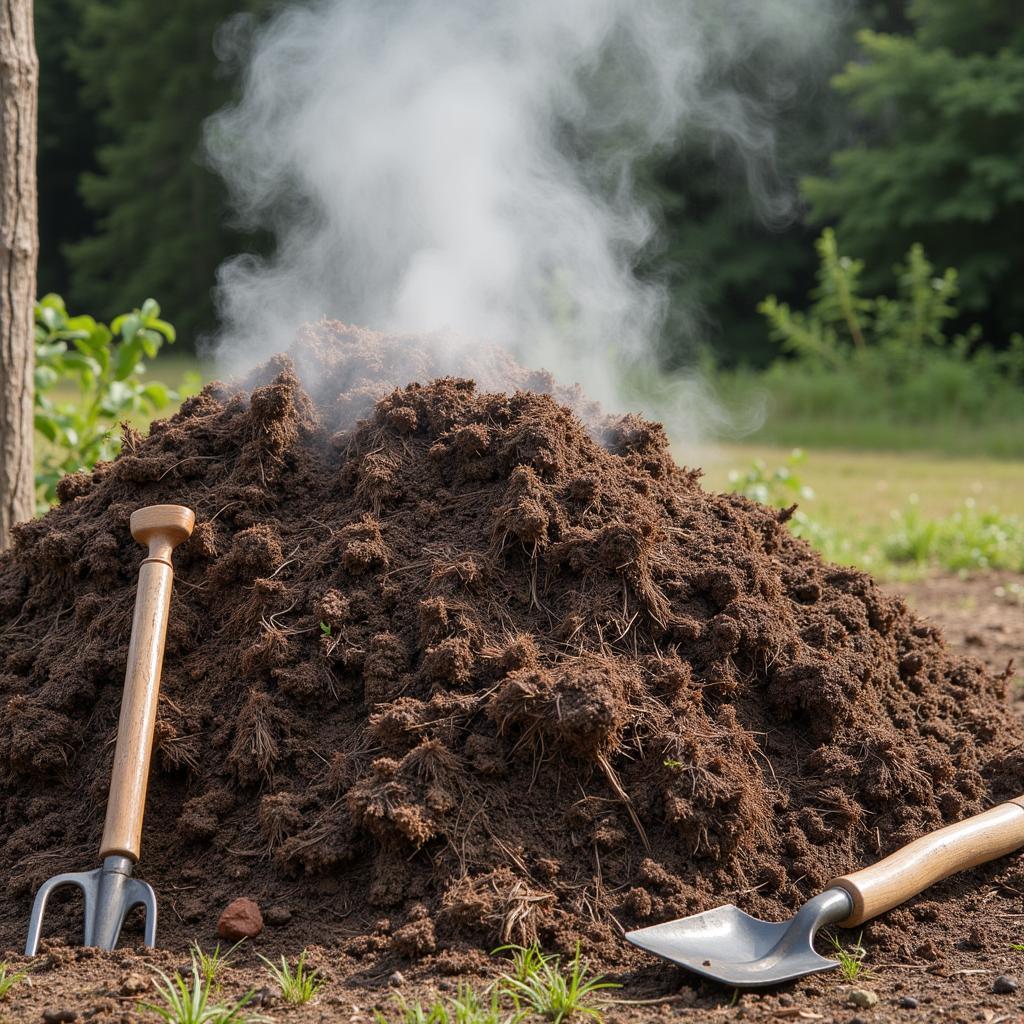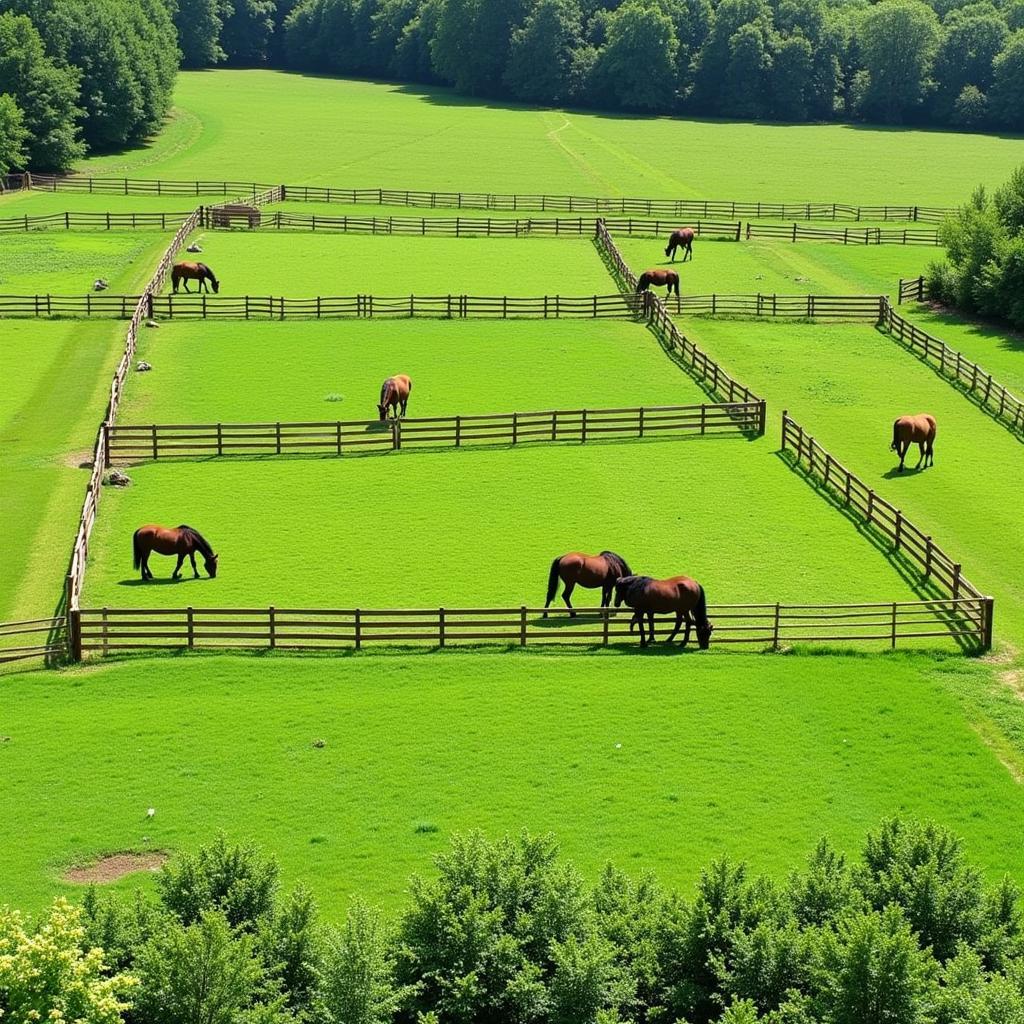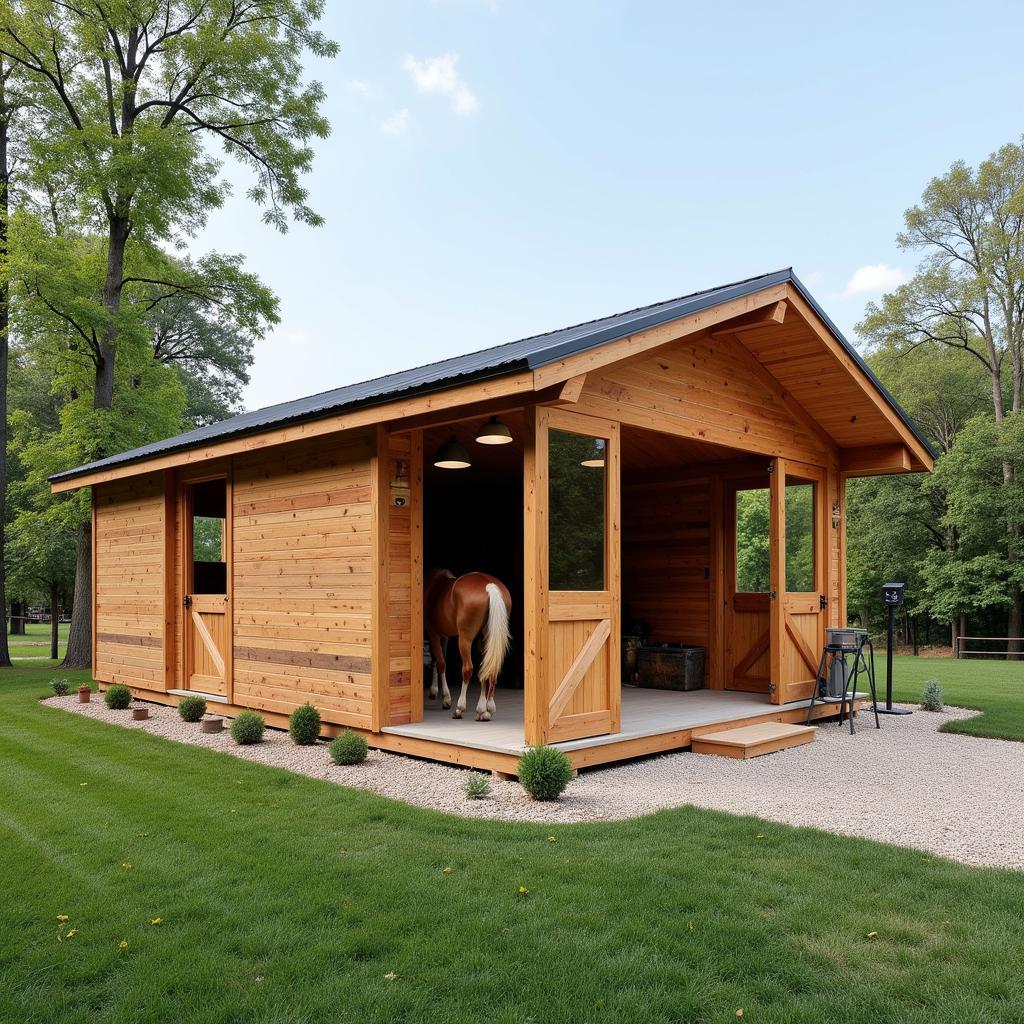Creating an environmentally friendly horse lifestyle is becoming increasingly important for horse owners concerned about minimizing their impact on the planet. This involves adopting sustainable practices in all aspects of horse care, from manure management to pasture maintenance and feed choices.
Sustainable Practices for the Environmentally Friendly Horse
Adopting environmentally conscious horse keeping practices can benefit both the environment and your horse’s well-being. Let’s delve into some key areas where you can make a difference:
Manure Management for an Environmentally Friendly Horse
Effective manure management is crucial for minimizing environmental pollution. Composting is an excellent method to break down horse manure into a valuable soil amendment, reducing waste and enriching your garden or pasture. Properly managed compost piles minimize odor and reduce fly breeding.
 Composting Horse Manure for a Sustainable Stable
Composting Horse Manure for a Sustainable Stable
Another approach is to collaborate with local farmers who can utilize horse manure as fertilizer for their crops. This creates a closed-loop system, benefiting both the horse owner and the farmer while reducing waste.
Pasture Management and the Environmentally Friendly Horse
Rotating pastures regularly allows vegetation to recover, preventing overgrazing and soil erosion. Implementing rotational grazing systems can also help to minimize the need for chemical fertilizers and pesticides.
 Sustainable Pasture Management with Rotational Grazing
Sustainable Pasture Management with Rotational Grazing
Consider planting native grasses and legumes that are adapted to your local climate. These species are often more drought-tolerant and require less water and fertilizer than non-native grasses.
Feeding the Environmentally Friendly Horse
Choosing locally sourced feed can significantly reduce your carbon footprint by minimizing transportation distances. Look for feed producers who prioritize sustainable farming practices, such as using organic methods and minimizing packaging waste.
Consider feeding your horse hay that has been harvested and stored in an environmentally friendly way. Proper baling and storage techniques minimize spoilage and reduce the need for supplemental feeding.
Water Conservation for the Environmentally Friendly Horse
Implement water-saving practices, such as installing automatic waterers that minimize spillage. Regularly check for leaks and repair any faulty equipment promptly.
Consider using rainwater harvesting systems to collect and store rainwater for watering your horse and cleaning your stable.
Minimizing Your Environmental Impact: More Tips for the Environmentally Friendly Horse
Beyond the core areas mentioned above, there are many other ways to minimize your environmental impact:
- Reduce, Reuse, Recycle: Apply the 3 R’s to your horsekeeping practices. Reduce your consumption of resources, reuse items whenever possible, and recycle materials like plastic bottles and metal cans.
- Energy Efficiency: Use energy-efficient lighting in your stable and consider installing solar panels to generate renewable energy.
- Natural Fly Control: Implement natural fly control methods, such as using fly predators and installing fly traps, to reduce your reliance on chemical insecticides.
 Environmentally Conscious Horse Stable Design
Environmentally Conscious Horse Stable Design
“Prioritizing sustainability in horse care is not only good for the environment, but it also benefits the health and well-being of our equine companions,” says Dr. Emily Carter, Equine Veterinarian and Sustainability Advocate.
“By adopting environmentally friendly practices, we can create a healthier and more sustainable future for both horses and the planet,” adds John Miller, Certified Horse Trainer and Environmental Educator.
Conclusion: Embracing the Environmentally Friendly Horse Lifestyle
Embracing an environmentally friendly horse lifestyle requires a commitment to sustainable practices in all aspects of horse care. By making conscious choices and implementing eco-conscious strategies, we can minimize our environmental impact and create a healthier future for both horses and the planet.
FAQs
- What is the best way to dispose of horse manure?
- How can I reduce my horse’s water consumption?
- What are the benefits of rotational grazing?
- Are there environmentally friendly alternatives to chemical fly control?
- How can I choose sustainable horse feed?
- What are some examples of environmentally friendly bedding materials?
- How can I reduce my stable’s energy consumption?
Need more help? Contact us! Phone: 0772127271, Email: [email protected] Or visit us at: QGM2+WX2, Vị Trung, Vị Thuỷ, Hậu Giang, Việt Nam. We have a 24/7 customer support team.